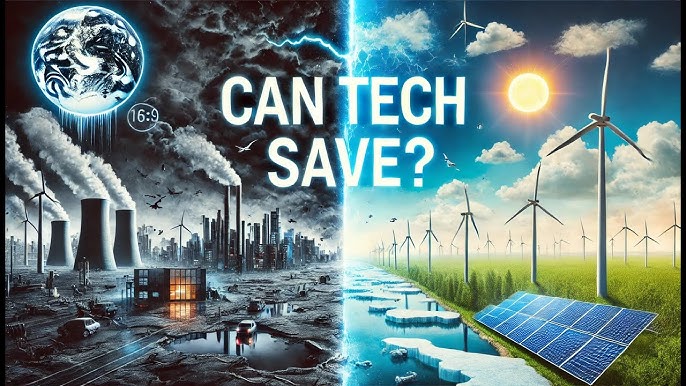A growing number of thinkers and environmentalists are questioning the long-held belief that technology alone can save humanity from the worsening climate crisis. This emerging discussion — often framed as a clash between techno-optimism and environmental reckoning — challenges whether innovation, no matter how advanced, can truly undo the damage caused by centuries of industrial exploitation.
The Rise of Techno-Solutionism
For decades, global narratives around climate change have leaned heavily on techno-solutionism — the idea that human ingenuity will always find a way out of environmental peril. From carbon capture systems and geoengineering to AI-powered sustainability tools, technology has been hailed as a savior. Yet, as the planet warms and biodiversity dwindles, critics argue that this mindset represents the same overconfidence that created the ecological crisis in the first place.
Rethinking Humanity’s Relationship with Nature
Environmental philosophers and scientists are now calling for a cultural and moral shift in how societies view progress and nature. While acknowledging the importance of innovation, they warn that overreliance on technology risks reinforcing humanity’s disconnect from the natural world. Instead of treating the planet as a system to be optimized, they advocate for development models that embrace restraint, balance, and ecological wisdom.
Techno-Optimists Hold Their Ground
On the other side, proponents of techno-optimism insist that innovation remains humanity’s best weapon against climate change. They cite advances in renewable energy, precision agriculture, and AI-based climate modeling as proof that technology can drive sustainable transformation. To them, rejecting technological progress would be both impractical and regressive in a world dependent on industrial systems for survival and prosperity.
A Clash of Values, Not Just Tools
At the heart of this debate lies a deeper question: is the climate crisis a problem of tools or values? While innovation can provide solutions, critics argue that the pursuit of endless growth and efficiency has come at the expense of ecological balance. As global leaders race to decarbonize economies and embrace clean technologies, the call for ethical and philosophical reflection grows louder.
Redefining Progress for a Sustainable Future
Experts increasingly agree that solving the climate crisis will require more than new machines or algorithms. It demands a redefinition of progress itself — one that measures success not just in GDP or productivity, but in harmony with the Earth’s ecosystems. The true challenge of the 21st century may not be building smarter technology, but cultivating a wiser humanity capable of living within its planetary limits.

